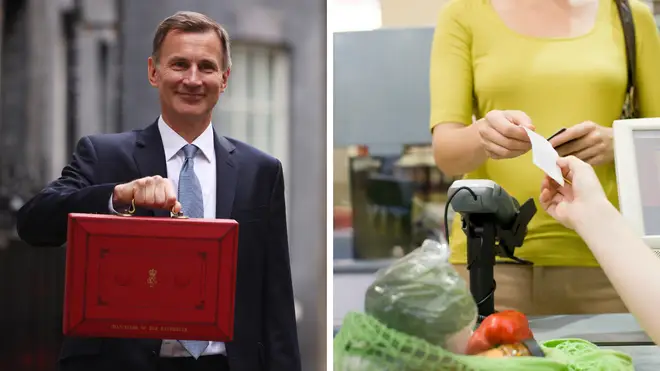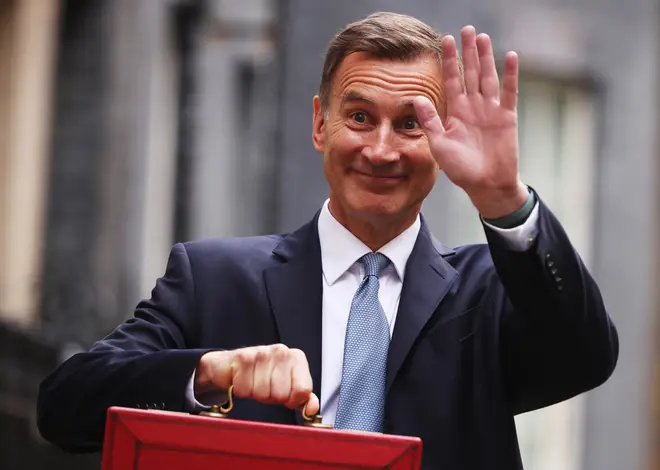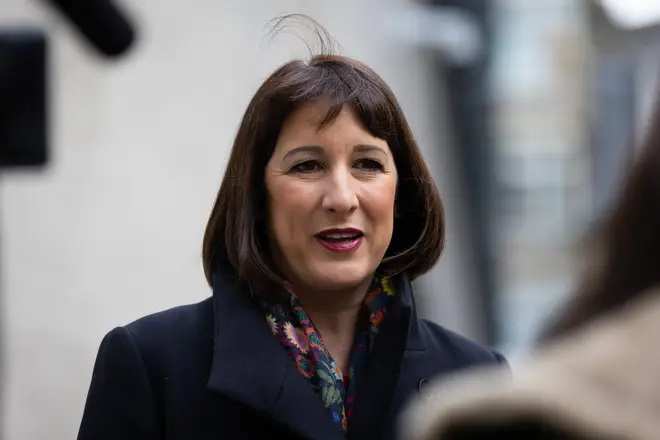
Shelagh Fogarty 1pm - 4pm
22 March 2023, 07:13 | Updated: 22 March 2023, 07:53

The rate of inflation rose to 10.4% in February from 10.1% in January, the Office for National Statistics said.
It is the first time inflation has risen in the UK for several months, with rises in food and non-alcoholic drink prices primarily to blame.
Food costs rose at their fastest rate for 45 years in the 12 months to February.
Some salads and vegetables saw massive increases in prices after a shortage of certain items.
Reacting to the increase, Chancellor Jeremy Hunt said "falling inflation isn't inevitable" and that the government would stick to its plan of halving inflation this year.
"We recognise just how tough things are for families across the country, so as we work towards getting inflation under control we will help families with cost-of-living support worth £3,300 on average per household this year," Mr Hunt said.

Read More: Supermarket own-label prices double in a year as Bank of England warns against 'greedflation'
But Labour's shadow chancellor Rachel Reeves blamed the Government for the rise in prices, saying "nothing is working better than it did 13 years ago.
Ms Reeves said: "The reality is that under this Tory Government, families are feeling worse off and nothing is working better than it did 13 years ago.
"The cost-of-living crisis is still biting hard and taxes are rising, yet the Government chose to use the Budget to hand a £1 billion bung to the top 1%.
"Labour will stand with working people and with our mission to secure the highest sustained growth in the G7, make families across every part of our country feel better off."

Read More: Boris Johnson to vote against Rishi Sunak's 'unacceptable' Brexit deal
ONS chief economist Grant Fitzner said: "Inflation ticked up in February, mainly driven by rising alcohol prices in pubs and restaurants following discounting in January.
"Food and non-alcoholic drink prices rose to their highest rate in over 45 years with particular increases for some salad and vegetable items as high energy costs and bad weather across parts of Europe led to shortages and rationing.
"These were partially offset by falls in the cost of motor fuel, where the annual inflation rate has eased for seven consecutive months."